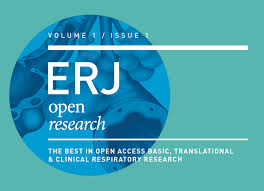
Perioperative leaders face a workforce transition unlike any in recent memory. By 2030, all baby boomers will have reached retirement age, and many veteran perioperative nurses are already exiting, taking with them decades of institutional knowledge. At the same time, the expectations of today’s workforce have shifted, placing greater value…

Editor's Note Women who work night shifts are around 50% more likely to have moderate or severe asthma compared to women who work only during the day, according to findings published in ERJ Open Research. As detailed in a June 15 announcement from the European Respiratory Society, the study analyzed…

Editor's Note Clocking long hours has impact beyond fatigue. It may also physically reshape the brain. As reported May 13 by CNN, that is the central finding of a new study showing significant structural brain changes in overworked individuals, particularly in areas tied to emotional regulation and executive function. Conducted…

Editor's Note Only 39% of nurses expect to remain in their current jobs a year from now, citing burnout, compassion fatigue, and inflexible schedules as top reasons for leaving, according to AMN Healthcare’s 2025 Survey of Registered Nurses. Healthcare IT News reported on the findings May 14. As detailed in…

Editor's Note Hospital units with more RNs and fewer long shifts experience significantly lower rates of staff sickness absence, while understaffing and long shifts drive nurse illness, according research published April 22 in JAMA Network. The retrospective longitudinal case-control study involved 18,674 RNs and nursing support (NS) staff across 116…

Staff recruitment and retention is the top priority of OR leaders going into 2024, according to a November/December survey conducted by LeanTaaS in collaboration with OR Manager. Out of 84 respondents (some skipped), while 76% chose staff recruitment and retention, both improving operational efficiency (65%) and sustaining volume (36%) also…
Editor’s Note Nurses would like to significantly increase time spent with patients, coaching fellow nurses, and pursuing professional growth, according to survey data published on May 26 by McKinsey & Company. The survey included questions regarding how nurses spend their time during a typical shift (broken down across 69 specific activities)…
Editor's Note This Canadian study examines the associations between shift work and cognitive impairment. A total of 47,811 adults between 45 and 85 years of age were included in the analysis. Higher rates of cognitive impairment were found in those who were exposed to night-shift work during their current jobs…
Editor's Note This Canadian study finds that nurses who received 40 minutes of bright light exposure before their night shifts had reduced fatigue and committed fewer errors at work. Researchers at the McGill University Health Centre, Montreal, enlisted 57 nurses who were on a rotating schedule of both day and…
Editor's Note This study from Stanford University finds that anesthesia residents who worked night float call rotations slept the same number of hours, but had less REM sleep, were more fatigued, and had less positive affect. All of these resolved a week after their rotation except fatigue. A total of…